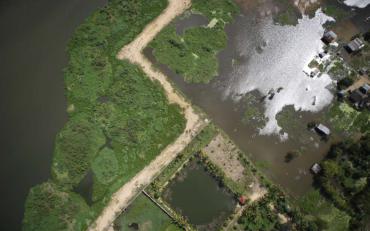Today, a quarter of our freshwater is used for energy generation, to turn turbines for hydropower, to produce steam, and cool equipment such as in nuclear or thermal power plants. According to the International Energy Agency, it is estimated that global electricity consumption will increase 75% between 2007 and 2030 with the main demand coming from developing countries as their levels of affluence grow.
A gradual shift from fossil fuel reliance towards renewable energy sources will have a further impact on water use for energy. The question is, will there be enough water and energy for all? And if there is enough, will it be clean, sustainable and affordable? With this increasing demand, how will ecosystems, such as river basins and wetlands that serve as ‘natural infrastructure’, capturing, cleaning and storing our water, cope?
“The inter-dependencies between water and energy are critical. Without water, we will have no lights to turn on – and without energy, no water out of the taps we turn,” said Julia Marton-Lefèvre, IUCN Director General during the World Water Week opening ceremony.
“We must not lose sight of sustainability. We must make sure that restoring and protecting the ecosystems that safeguard and supply water are part and parcel of the water and energy agendas. We must think of this: energy for all will change lives – and sustainable energy for all will transform the future of our planet.”
The water and energy theme of this year’s event is important to much of IUCN’s conservation work. "We are committed to ensuring that ecosystems continue to supply water to the energy sector while working to prevent biodiversity loss caused by poorly planned energy and water resources development", said Mark Smith, Director, IUCN Global Water Programme.
IUCN’s mandate as a Union brings together different interest groups to debate issues relating to biodiversity and the sustainability of natural resources. None is more important than water, the source of all life, and energy, to ensure water is shared and distributed, and ultimately, returned to nature.
